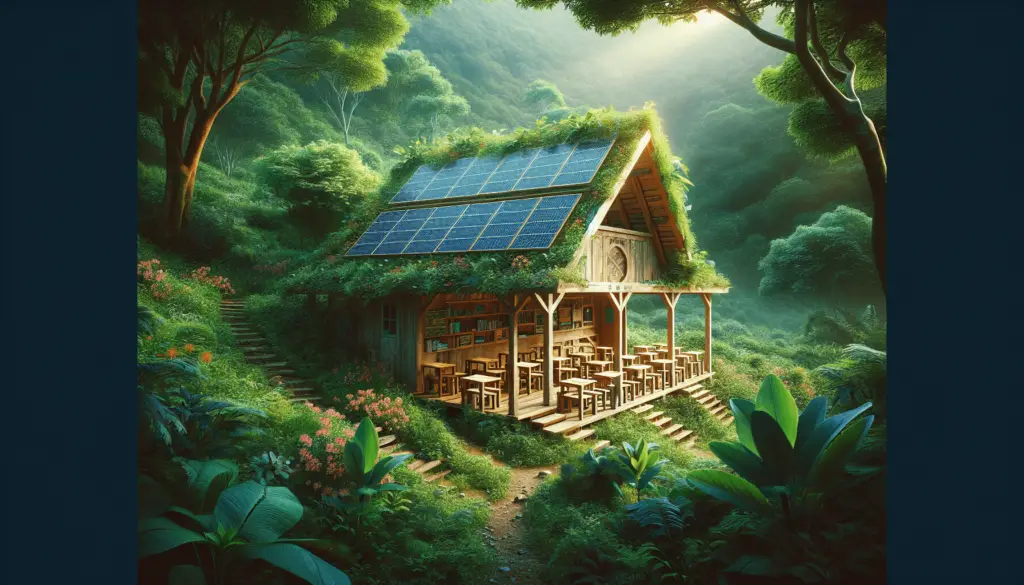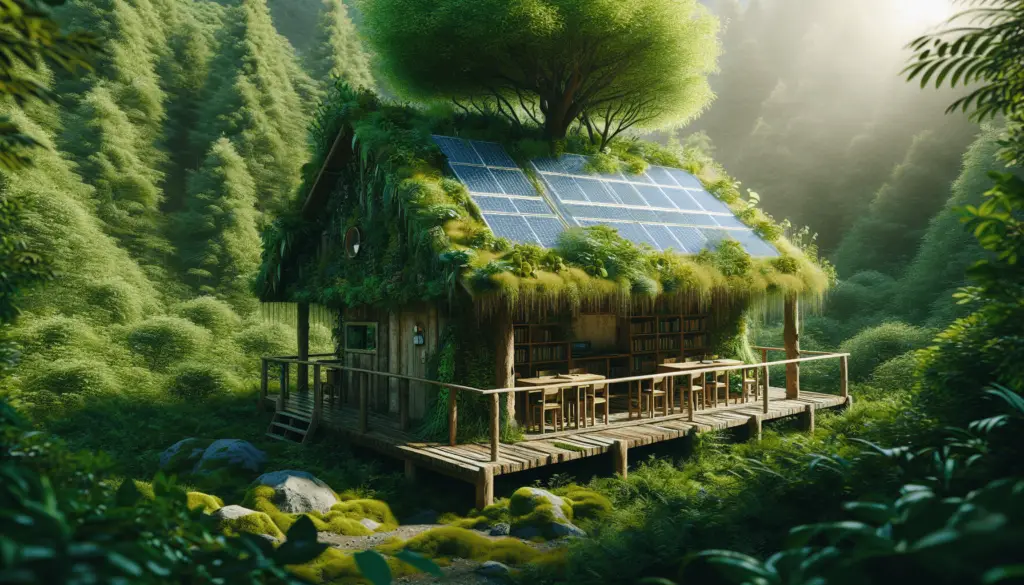Have you ever wondered what it would be like to create an education system that operates independently of the traditional grid? In this article, we will explore strategies for creating an off-grid education system. From sustainability to self-reliance, we will cover everything you need to know to establish a unique and innovative educational environment. Let’s get started!

Understanding Off-Grid Education
Off-grid education refers to a system that operates independently of mainstream educational norms and infrastructure. It often focuses on self-reliance, sustainability, and personalized learning experiences. By removing the constraints of traditional schooling, off-grid education offers flexibility and autonomy in how students learn and grow.
What Makes Off-Grid Education Different?
Off-grid education differs from traditional schooling in several key ways. While conventional schools follow a structured curriculum and set schedule, off-grid education allows for more freedom and individualized learning paths. Students in an off-grid setting may have more opportunities for hands-on experiences, project-based learning, and collaboration with peers of different ages.
Developing a Vision for Your Off-Grid Education System
Before diving into the practical aspects of creating an off-grid education system, it’s essential to develop a clear vision for your project. Consider what values and principles are most important to you and how you want these to be reflected in your educational approach. Whether it’s sustainability, community engagement, or creativity, your vision will guide the decisions you make throughout the process.
Key Questions to Consider
- What are your goals for the off-grid education system?
- What values and principles will be at the core of your educational approach?
- How will you ensure inclusivity and diversity within your learning community?
- What resources and support will you need to bring your vision to life?

Establishing a Sustainable Infrastructure
Sustainability is a key component of off-grid education. By creating a system that minimizes environmental impact and maximizes resource efficiency, you can teach students valuable lessons about stewardship and conservation. Building a sustainable infrastructure involves careful planning and consideration of factors such as energy usage, waste management, and food production.
Sustainable Practices to Consider
- Implementing renewable energy sources such as solar panels or wind turbines
- Utilizing composting and recycling programs for waste management
- Establishing a school garden for hands-on learning about food production
- Incorporating eco-friendly building materials and design principles
Creating a Curriculum Tailored to Off-Grid Education
One of the most significant advantages of off-grid education is the ability to tailor the curriculum to meet the specific needs and interests of students. This flexibility allows for a more personalized and engaging learning experience. When designing a curriculum for your off-grid education system, consider incorporating a mix of academic subjects, practical skills, and interdisciplinary projects.
Curriculum Design Tips
- Integrate hands-on learning experiences that connect academic concepts to real-world applications
- Encourage student-led projects and research initiatives to foster curiosity and critical thinking
- Include opportunities for experiential learning in nature, such as outdoor field trips and environmental studies
- Emphasize interdisciplinary learning by weaving connections between different subjects and disciplines
Fostering a Sense of Community and Collaboration
Building a strong sense of community is essential in any educational setting, but it is especially important in off-grid education. By fostering a supportive and collaborative environment, you can create a space where students feel empowered to learn and grow together. Encourage open communication, teamwork, and respect for diverse perspectives within your learning community.
Strategies for Community Building
- Organize regular community meetings or gatherings to discuss ideas, share experiences, and address challenges
- Promote mentorship and peer learning opportunities to facilitate knowledge exchange and skill development
- Encourage students to take on leadership roles and participate in decision-making processes within the school community
- Establish partnerships with local organizations and businesses to expand learning opportunities and community engagement
Implementing Alternative Assessment Methods
In off-grid education, traditional forms of assessment such as standardized tests and grades may not always align with the values and goals of the learning environment. To promote a more holistic and inclusive approach to evaluation, consider implementing alternative assessment methods that focus on student growth, creativity, and problem-solving skills.
Alternative Assessment Ideas
- Portfolio assessments that showcase student work and accomplishments over time
- Project-based assessments that require students to demonstrate their knowledge and skills through hands-on projects
- Peer evaluations and self-assessments that encourage students to reflect on their learning progress and set goals for improvement
- Performance assessments that allow students to showcase their talents and abilities in creative ways
Nurturing Social and Emotional Development
Off-grid education provides a unique opportunity to prioritize social and emotional development alongside academic learning. By creating a supportive and nurturing environment, you can help students cultivate important life skills such as empathy, resilience, and self-awareness. Consider implementing strategies that promote emotional intelligence and positive relationships within your learning community.
Social and Emotional Learning Strategies
- Incorporate mindfulness and relaxation techniques into daily routines to promote self-regulation and stress management
- Teach conflict resolution and communication skills to help students navigate challenging situations and build healthy relationships
- Foster a culture of empathy and compassion through community service projects and collaborative initiatives
- Provide opportunities for reflection and self-expression through art, music, and creative writing activities
Cultivating a Lifelong Love of Learning
At the heart of off-grid education is the belief that learning is a lifelong journey that extends far beyond the classroom. By nurturing a love of learning in students, you can empower them to explore their interests, pursue their passions, and engage with the world around them in meaningful ways. Encourage curiosity, creativity, and critical thinking as you guide students on their educational path.
Ways to Foster a Love of Learning
- Create a culture of curiosity by encouraging students to ask questions, explore new ideas, and seek out knowledge independently
- Offer opportunities for independent research, self-directed learning, and personal projects that align with students’ interests and goals
- Celebrate diversity and inclusivity by highlighting the unique talents, backgrounds, and perspectives of all learners
- Cultivate a growth mindset by emphasizing the value of effort, resilience, and continuous improvement in the learning process
In conclusion, creating an off-grid education system requires a thoughtful and innovative approach that prioritizes sustainability, community, and personalized learning experiences. By developing a clear vision, establishing a sustainable infrastructure, designing a tailored curriculum, fostering a sense of community, and implementing alternative assessment methods, you can create a dynamic and engaging educational environment that empowers students to thrive. Embrace the possibilities of off-grid education and watch as your learning community flourishes with creativity, curiosity, and connection.
